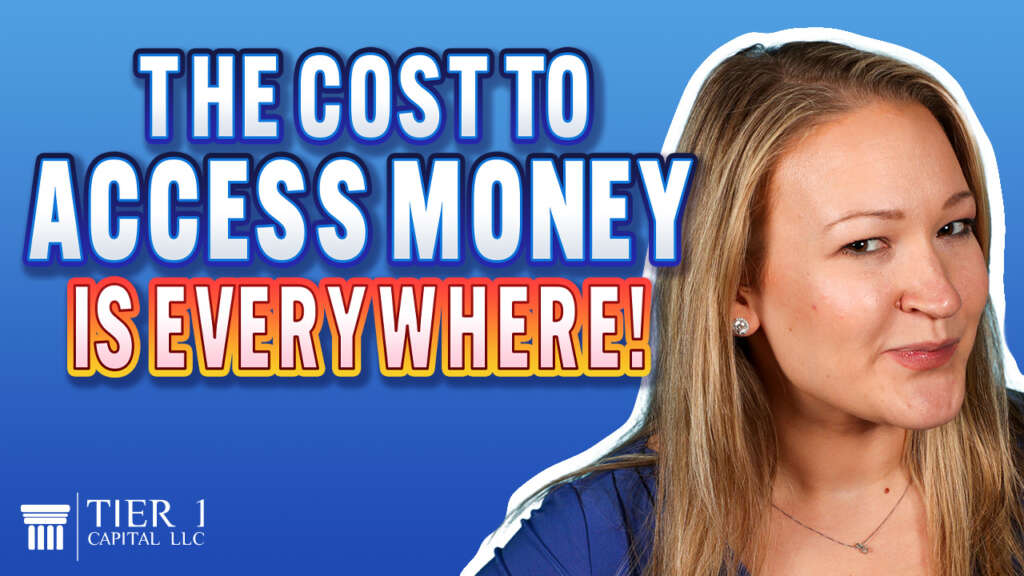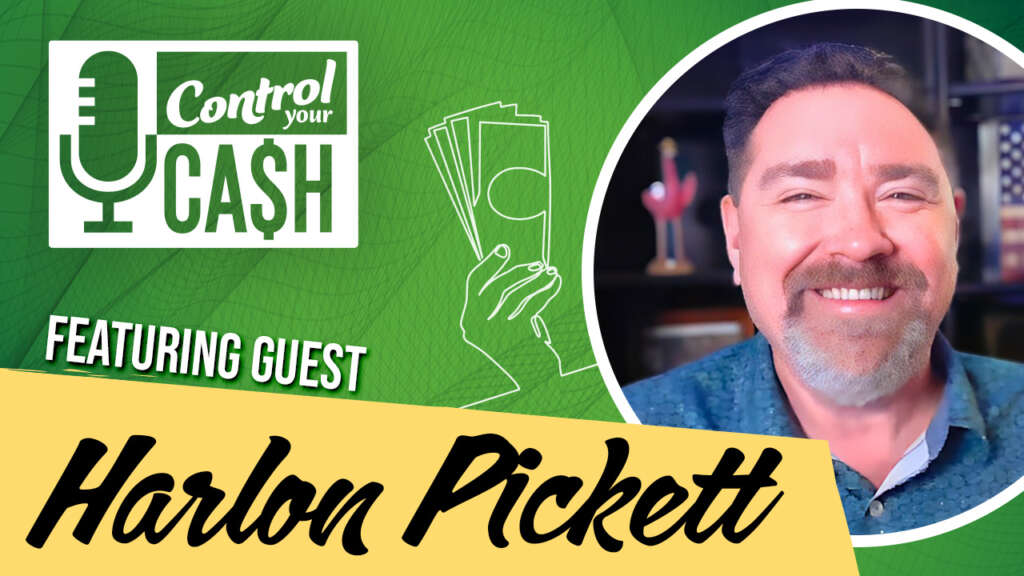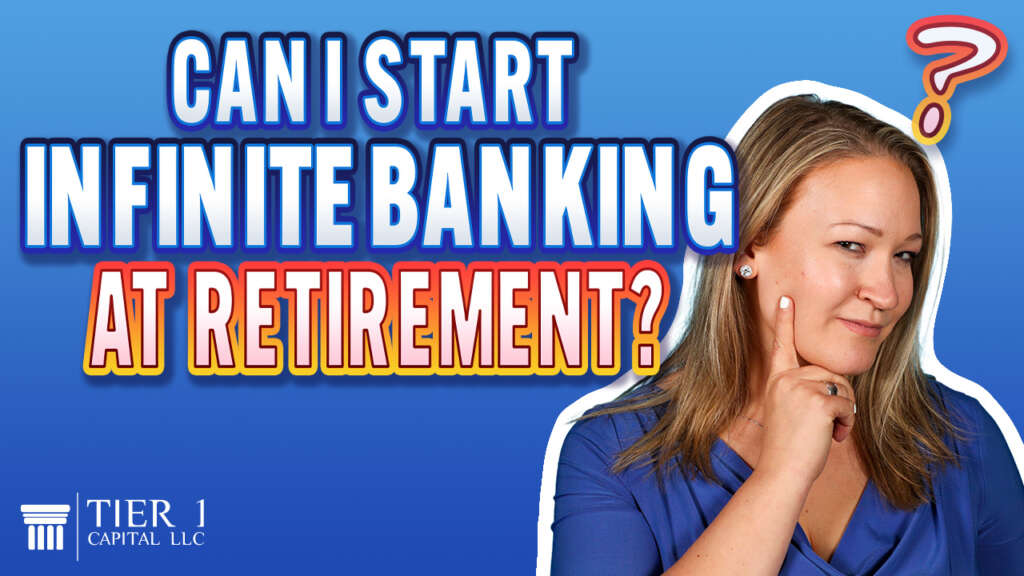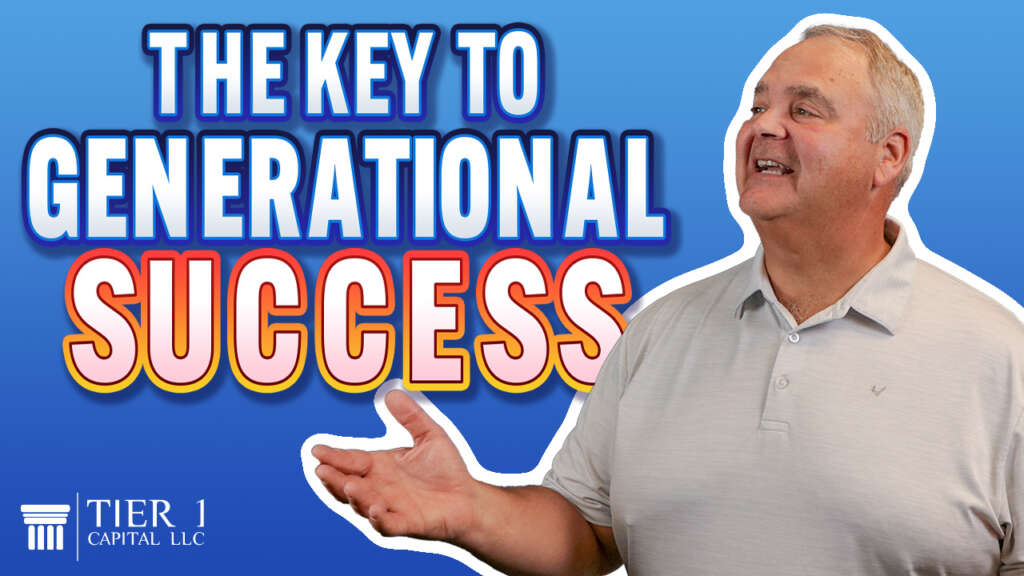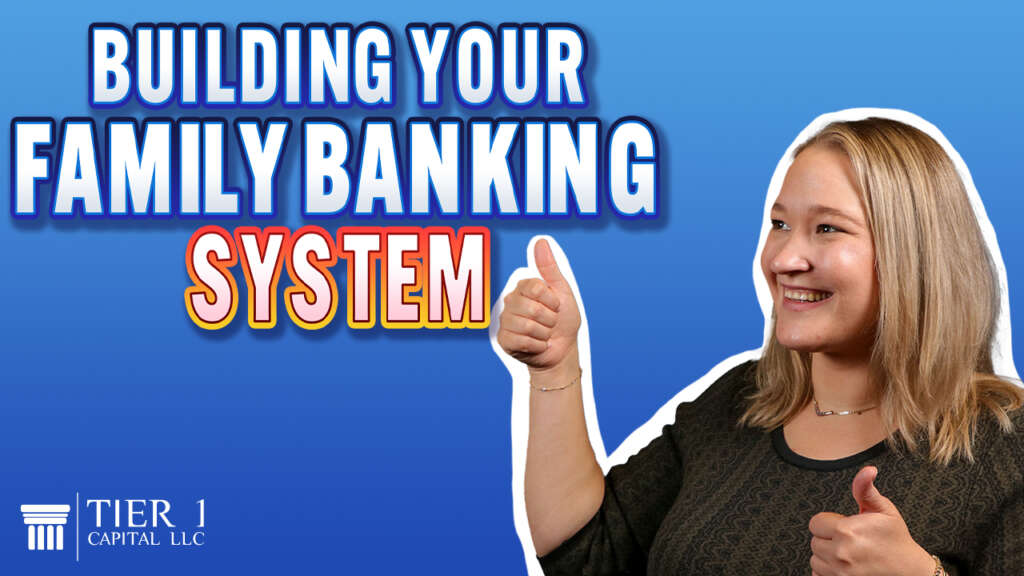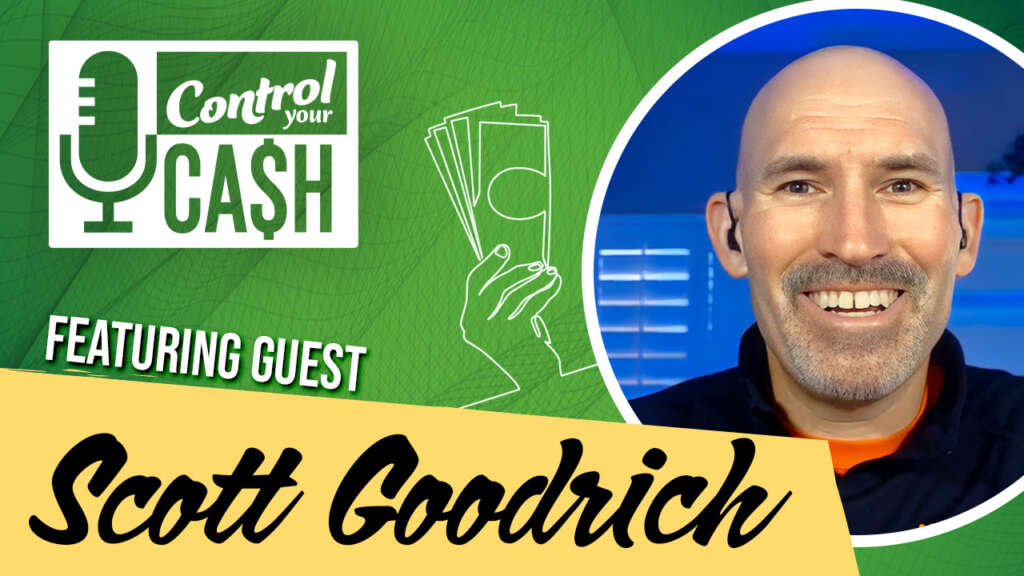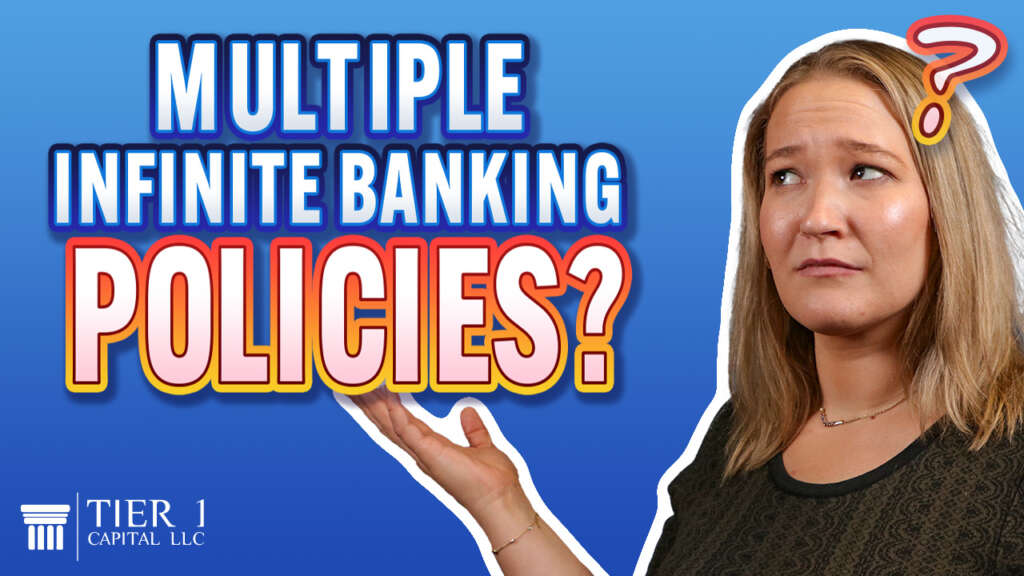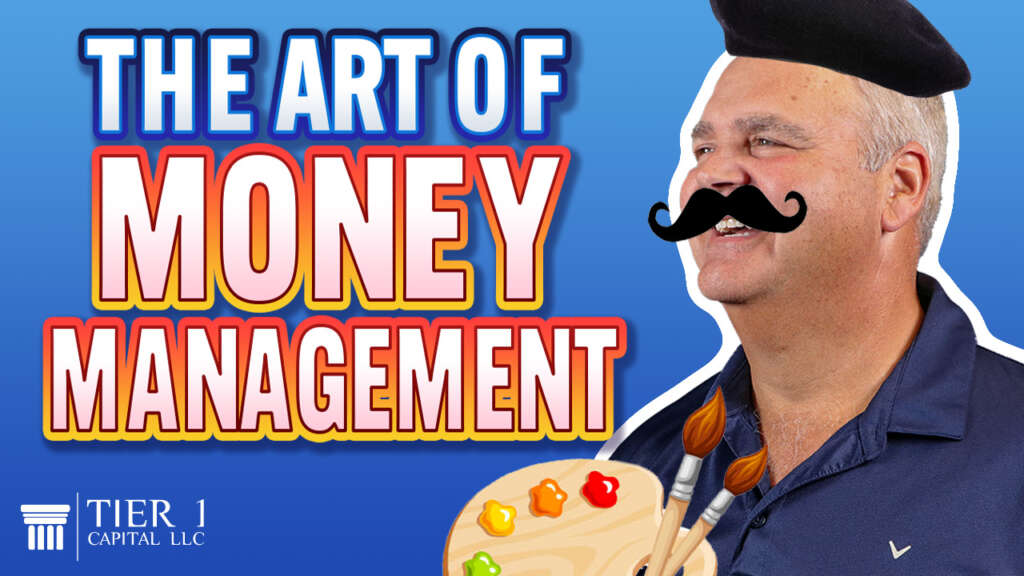In this episode, Harlon Pickett joins us to discuss the evolution of the insurance industry over the past 20 years, emphasizing the shift from true risk-sharing to a system where everyone is considered sick due to regulatory changes like the Affordable Care Act (ACA). The conversation delves into the challenges faced by employers, physicians, and employees, highlighting issues such as rising costs, denial of services, and the disconnect between health insurance and actual healthcare. Harlan introduces alternative-funded health solutions, including direct primary care models, as a way to address these challenges and provide better access to high-quality healthcare while controlling costs. The episode underscores the importance of understanding the nuances of health insurance and exploring innovative approaches to improve the healthcare system for all stakeholders.
Transcript
Tim: Welcome to the control your cash podcast. I’m Tim Yurek
Olivia: and I’m Olivia Kirk. Today we welcome Harlon Pickett of Eagle Care Health Solutions. Harlon, thank you so much for joining us on this episode today.
Harlon: Absolutely. Olivia, Tim, it is a pleasure and my honor to be here.
Olivia: Yes. And Harlon, you’re calling in from San Antonio, Texas, but we understand you work with all 50 states and I know that we have a great episode in store for our listeners today, um, with some unique solutions to health type insurance and health care for small businesses as well as individuals.
So I’m excited to get into that.
Harlon: Yeah, absolutely. Whenever I had an opportunity to talk to Tim previously, I think It fits right in with the model that you guys use in control your cash. The thought process around health insurance, what we call the big lie, is that you cannot control your health care cost.
And business owners in particular have been fed this line. I’ll just stop right there for years and years that they had no control over it. It’s just a you know what? Next year the rates gonna go up and the next year the rates gonna go up and there’s nothing you can do about that. And as I said, it is the big lie.
There are ways that you can actually take control of your health care costs, therefore controlling your cash.
Olivia: Yeah, absolutely. So Harlon and I had the chance to speak a little bit before, before the recording and, you know, he was talking as you were, as you were talking, Harlon, there were so many parallels, you know, between what Tim and I do and in our work is with financial planning, um, that were direct parallels with what you do and how you help people break the chains to what is normal and what is the conventional wisdom and what is presented to us that so often.
could take advantage of the business owner as well as the individual. So, um, you’re doing great work over there. So tell us a little bit about how you got started in this space.
Harlon: Yeah, the story is, you know, the same old for many people. And that is I’ve been in this industry for almost 20 years. I was brought up to believe that insurance was awesome.
It was necessary for everybody. You know, the definition of insurance, if you’re out there and you have no idea what insurance actually really means, it isn’t someone just to pay your bills. It is the sharing of risk. The actual definition of insurance is the sharing of risk. Now, what happens whenever there is no sharing of risk anymore is you’re going to see, uh, rates really climb the way we have seen since.
The ACA, Affordable Care Act, Obamacare, has been put into place. When there’s no underwriting to be done and everyone must be considered as the same, then in essence everyone must be considered sick. So everyone has to be considered, at basically the worst case scenario, because even though it’s still called insurance, it really isn’t by definition anymore.
Because once you have, uh, now really what you’re doing is you’re paying somebody else to pay your bill. Uh, that is not a sharing of risk anymore. The insurance company takes on the full blunt of that because they have no choice but to accept you, no matter what your conditions are. Of course, this is also the reason why people have to pay the same thing, whatever your age is, whatever your zip code is.
You’re paying the same thing as everyone else is in that age group and in that zip code. The, the reason for that is, is because once again, everyone must be considered the same. So even if you are 32 years old and perfectly healthy, never been sick in years and years, and you go and you have your annual physicals done and everything is wonderful, Or you’re 32 years old, and you’ve got autoimmune diseases, and you have thyroid problems, and you are a cancer survivor, or in cancer treatment.
All of those prices are exactly the same for each of those two people. Uh, therefore, everyone is sick. It doesn’t matter if you’re the well person or the sick person. Everyone is taught, everyone is looked at exactly the same. I didn’t understand this, as many of us didn’t, whenever this change happened. So, we watch these prices increase, and then we watch the insurance companies start taking dramatic action and denial of services and deciding when people really should have something or not.
There’s a difference between pre authorization and just denying service. Pre authorization is actually necessary in many cases to make sure you’re not getting something done that can hurt you or harm you. Uh, that’s also called medical utilization management. But what we’ve really run into now is so much that is just automatically denied.
You know, there’s that old joke out there that there’s the person that their only job is to rubber stamp deny it on everything that comes across their table without them even looking at it, right? Just, they just, it just comes through there and they just hit the red thing on it and then we’ll see who appeals and then we’ll think about whether we’re going to pay anything.
And it feels that way sometimes to folks because they don’t understand. Why I just got an x ray denied when clearly I have something wrong. Why would you say I can’t have an x ray to figure out what it is? So all of these things kind of bundled together, Olivia, as I was going through my career and I realized I’m not helping the people that I thought I was helping.
People are getting denied life changing services. And people are not able to afford their insurance anymore. They’re, they’re really just putting it away. And if they do have insurance, they’re deductible so high now that they can’t afford to get their health care anymore. And I used to believe, like many people do, that health insurance and health care were the same thing.
But they are not. They are two very different things. And you do not have to have health insurance to get health care. I had to learn that lesson. And once I did, then I realized there had to be a better way. And so that’s what sent us down this pathway of what we call alternative funded health solutions that in some cases use insurance and in some cases do not, but in every case provide access to high quality health care.
Olivia: Is that the real insurance, Harlon? The sharing of risk or the fake insurance?
Harlon: You know, it’s interesting because when we go through with one of these plans, typically your group is going to be underwritten as your group, not what everyone else is in your area. And so that then is actual insurance. It is based on the health of your population, your employees. That means that, hey, a younger, healthier group is going to get better rates than that middle or older group that may have some health issues.
Is it fair? Well, absolutely, it’s fair. One provides a lesser risk than the other. That’s the way, in my opinion, it should be because now we’re using insurance again. Do you want the lower rates? Well, let me tell you, this is something very interesting. There are a number of things that we can institute into a health plan to help your group get healthier.
We can’t get them any younger. We haven’t figured that one out yet, Lydia. We haven’t figured that one out yet, Tim. We can’t get them any younger.
Olivia: You had my attention for a second, Harlon.
Tim: Well, Harlon, I just want to hold that thought because I got the solution for getting younger because a few weeks ago, I was up in St.
Augustine, Florida, and they have the Fountain of Youth. So, you know, we haven’t given up on that, so just keep that in mind. Mastermind
Olivia: Sessions, St. Augustine, Florida, the Fountain of Youth.
Harlon: When you said St. Augustine, I knew where you were going there, Tim. That’s uh, that’s clearly their claim to fame there. I, I don’t know. Maybe that’s why so many people retire to Florida is everyone’s actually trying to matriculate that way down towards St. Augustine so they can get them a little drink and see what happens, right?
Tim: That’s right. Well, you know, a couple other things that you had alluded to earlier on in this conversation is that, What passes for health insurance today is really not insurance. It’s really just basically you’re hiring somebody to pay your bills and, and they’re not doing a good job at that anyhow. And you know, the other thing, you know, you had mentioned the affordable care act, which every government program that comes out with a name sounds like this great thing for the consumer or for the Average person, right?
The Affordable Care Act. It’s neither affordable and they don’t care. They don’t give a crap, you know? And it’s funny. And you talk about the lies, right? So I’ll, I’ll just, I’ll take over here. I’ll carry the ball for you here, Harlon. If you like your doctor, you could keep them. Obama. That was it. That was the truth.
Or how about. If you like your health plan, you could keep it. Well, none of that turned out to be true, but I guess we have to also accept that 81 million people voted for a guy who stayed in his basement.
Harlon: Well, I’m not going down that pathway with you, Tim, but I hear what you’re saying, you know, the thing about that act and you missed one key part of that whole thing. We can’t read it until we pass it. Then we’ll take a look and see actually what’s inside of it. That was just one of the most famous things ever to me.
It’s so, first of all, you’re just too dumb to understand it, people. You don’t realize how much we’re helping you. Y’all read it later. It’s like, really? What could go wrong? It’s the old saying, right? I’m from the government and I’m here to help. Run for the damn hills when you hear that, folks. Run for the damn hills.
Olivia: Yeah, absolutely. So, Harlon, let’s pivot back. Tell me, how, so, as far as, from an employer’s perspective, let’s say someone has a small business and they have normal health health insurance from, you know, wherever they get it. Um, how could your solutions help them to, you know, get their people better care, healthier and lower the cost as well?
Because that’s a huge burden. I know it’s a huge burden on the on the business owners to the point where some business owners aren’t offering Uh, insurance to their employees. Even
Harlon: Yeah, that’s something that we ran into a number of times. And once again, it’s one of the things that opened my eyes as well.
So some of the clients that I had some of the small group clients that I had within two or three years of the passage of Obamacare, they were out of that business, right? They were out of that. I’m giving I’m providing health insurance to my employees business, not out of business, out of business, but out of that particular business.
Because Transcribed If you have less than 50 employees, you are not required to provide health insurance. And that number, that less than 50, that makes them about 90 percent of the businesses in the United States. So that means that the majority of businesses are not required to provide insurance. They do it because they want their folks to have, you know, access to health care.
They care about their people. And the unfortunate part is when they do offer it, it eventually becomes such a burden or becomes, uh, the plans change to where there’s very high deductibles, very low usage, and it ends up becoming a burden to the employer and the employee at the end of the day. So now the employee is wishing they didn’t have anything offered because they may actually qualify for a nice tax credit and be able to get that.
Another crappy plan, a different crappy plan, we get a crappy plan on the marketplace instead of a crappy plan from work. And, so, that just, it changes the dynamic of it. So, the answer, of course, is to look at what is going on with that company and asking them a very interesting question. I’m sure y’all never ask your clients this, because it doesn’t appear anyone in health insurance does anyway.
Well, what do you want? What do you want your health plan to do? What do you want it to look like? What are the benefits that you believe your employees would like to have? Would you like us to talk to them and find out what’s important to them? What’s their overall health? What type of care do they need?
When you ask those questions and then the employer realizes that they can actually have input on what their plan looks like and the benefits that are built into it, it changes the game dramatically. And here’s the other part. Most health plans, and I talked to you a little bit about this before we started.
Health insurance and health care are two different things, but we’ve been brainwashed in this country to believe that health insurance equals health care, and especially for small employers. But what is not built into any of your traditional health insurance plans is health care. Now think about that for a minute.
There’s nothing in there. that there is actual access to health care built in. Even if there’s a copay, you’re like, oh no, no, but there is. See, I have this copay where I get to go see a doctor. Okay, how’s that working out for you? When you finally get to see that doctor, how long do you spend in the waiting room?
When you finally get out of the waiting room and into the room, how long do you wait before the doctor shows up? When the doctor finally shows up, how much time do you actually have with that doctor? When that consultation of five to seven minutes is done, what are the next steps? Well, I can promise you it’s typically going to be one of two things.
Hey, it’s time for a new medication, or I’m going to refer you to a specialist for that. Even if it’s within the scope of what that practitioner can do, they typically don’t have the time to treat you and the inclination, because They know that they’re going to actually receive bonuses by pushing you up that chain.
The more they push you, it’s not about writing medication scripts anymore that give them bonuses. It’s about feeding up that chain. healthcare system change. They need you to see a specialist, and then another specialist, and you know what the best possible outcome could be? Surgery. Oh my god, I wouldn’t believe how much money they’re going to pour down on me if I can get someone to have some surgery.
That’s a beautiful thing right there. It is. Talk about a conflict of interest. Well, of course it is, but imagine that every single year you could guarantee one thing, and that is the compensation you received was going down. Would you like that? Olivia, would you be happy if every year you knew the one thing that you could guarantee is that your, your job was going to guarantee you a lesser income?
Well, that is primary care in our country. Primary care every year gets anywhere from a three to five percent decrease in how much they’re getting paid by Medicaid, Medicare, and in many case health plans. However, their expenses go up every single year. So, they’re being treated, as the old saying would go, as a red headed stepchild, when they are actually the primary person, primary care, primary person, that determines what your health is going to look like.
What is your journey going to look like? Well, let’s take that health system out. How do we switch things up, right? How do we make it better? Let’s take that health system out there. Let’s get back to that patient doctor relationship. where we have what’s called direct primary care or advanced primary care or even direct specialty care where you have, in essence, your own corporate doctor, your own company doctor for your employees, where they can even text with a doctor 24 7, where they can, they can know they can be, I mean, when’s the last time you were able to text to your doctor and actually get a response?
Right? I mean, you can’t even talk to him. You call the office and you’ll never get a call back from the doctor. I’m lucky I could get to the nurse. Maybe, you might eventually get to the nurse, right?
Tim: Maybe, maybe.
Harlon: Maybe, right? This is, when we get these relationships in there, when we bring back that doctor patient relationship, now we’ve actually put health care back in the health plan.
But notice what I didn’t say there, health insurance. I We’re building a health plan that actually is what’s called the health care supply chain. So we bring in all the different parts of what a health plan or a health insurance plan would look like, but we build it in a very, very unique way so that it benefits the employee and the employer, not an insurance company.
Tim: Well, Harlon, it also, it appears to me that it also benefits the physician.
Harlon: Absolutely.
Tim: Right. So, I mean, there’s three stakeholders in this deal and they’re certainly the patient or the employee. There’s certainly the employer who’s paying the lion’s share, if not all of the cost. Right. And then there’s the physician.
And so the physician is paying is is getting paid. To do what he loves to do the reason why he went to medical school or she I’m sorry right because they want to take care of patients and that’s one of the things that I’ve seen in this corporate world of what is now and I hate to use the term health care because it’s really not health care but in this you know big corporate health care conglomerates that have taken over what you’re seeing is the care is just not there because, you know, doctors don’t have the time and they’re really not compensated to do what their patients expect them to do, which is to care for them, right?
Harlon: That’s exactly right. And it’s interesting. We talk about it, you know, still the number one, I’m sure you guys know this very, very well with the business you’re in. The number one reason people file bankruptcy in this country still to this day is medical debt. And for the first time ever, the numbers prove out that more people that have medical debt also have health insurance than those that don’t.
So we’ve seen that this thing is, it’s not, it’s not about not having insurance. In other words, the people who have health insurance, more of them now, there’s more of them that are having bankruptcy due to medical debt than those that don’t have it. So it’s, it’s not about insurance. It’s about access to health care.
And it’s about how you get that access. And just knowledge. And that’s the problem is the other part of it. People simply don’t know. And, and that’s the, that’s the difficult part. But the other side of that is what you just talked about with doctors. And that is the moral bankruptcy that happens to physicians when they’re not allowed to practice medicine.
And the way that they truly want to. They truly have a desire to do what’s in the best interest. But they simply. are not allowed to because of the machine that they have found theirself in. Um, we see record numbers stepping away, retiring earlier, completely getting out of medicine in a time when we can.
We cannot afford to lose any more primary care physicians. They’re just leaving in droves. and the folks coming out. Remember what I talked about. Hey, here it is. You’re going to be the lowest paid coming out and every year your pay is going to go down. And by the way, Mr. Med School student, can we get you to be a primary care doctor?
Yeah, good luck with that. I think I’ll be a podiatrist. Or whatever, right? I certainly don’t want to be one of those guys who has a high workload and a low pay. But this is the beauty of what has happened. There’s always the balances, right? The beauty of what has happened is it has caused a remarkable number to step away and say direct primary care is the answer.
This, this base where I’m not, I don’t accept insurance, I don’t accept Medicaid, I don’t accept Medicare. It is simply a relationship between me and my clients. And I’ll only take so many because you’re going to be guaranteed same day or next day appointments. and you’re going to be guaranteed the care that you truly deserve.
And the, the primary care physicians we see that are using this direct primary care model, they’re taking care of anywhere from 85 to 90 percent of all of your health care needs. A primary care doctor can take care of so many more things than what you believe they can, Before they ever have to send you to a specialist.
Whenever they have time to treat you. So in direct primary care, you’re getting 30, 45, even an hour to spend with your physician. Not in the waiting room, but with your physician. They don’t stop you and they say, Well, you know, uh, Olivia, I see you came in for four things today. But you know, we have a limit of three.
So, we’re going to talk about which ones are the most important to you. And then you can set another appointment for four months now to talk about that fourth one. I’m not allowed to really talk about four things. I don’t, I can’t put that in my code thing. If we did that, I wouldn’t get paid. And I can’t afford to not get paid.
You don’t want the, you don’t want the office to close, do you? Come on, help me out. And that’s real case stuff. That’s ridiculous it should be that way. But it’s not that way. Whenever you have that relationship with a primary care doctor in the direct primary care or advanced primary care setting. in a membership base where we’re taking care of your employees and we’re taking care of your business and we’re making sure they get healthier, not sicker, and we’re making sure they can afford care and there’s not any barriers to care.
It changes things dramatically.
Tim: So Harlon, that that is so such a such great, uh, insight on, you know, the problem that is faced by the employer, the physician. And the employee. So how did you see, or how did you have the foresight to see the solution? And what have you seen as the result of implementing this plan?
Harlon: Yeah. So I would love to take credit for all of this and it was all my idea. And, but it’s simply, it’s not the case. I did something kind of crazy. I went to places and I listened. I listened to others that had these great ideas. I listened to others that were fighting the good fight. Other rebels, as we like to say.
Other disruptors. Other folks that were seeing the problem and looking for solutions. I listened, and some of it I agreed with, some of it I didn’t. Some of it was just even too crazy for me. And I know that’s nuts, right? I mean, because I do some crazy stuff. But some of it also I didn’t feel like went far enough.
So what you get with eagle care is you kind of get what I believe is a bit of a balance, a balance between, you know, the old ways and some of the new ways. While I am not a huge fan of traditional insurance models now, I still believe they have a very, very important place. There are times there are groups that simply because of health issues are ongoing health use.
In particular, they have to stay with a fully insured health plan. Or we have to do some type of hybrid where some of the people are on a fully insured health plan and some people are not. It’s all about the group themselves and building something that’s custom for them. If you don’t ask the right questions, there’s no way you’ll get the answers that help you determine that.
But this journey has, is not easy. It’s still, it’s still not easy, Tim. Still not easy, Olivia, because Employers have been told this big lie that I talked about earlier. It’s been, it’s been talked about for so long. They just don’t want to hear there’s something different. They just don’t believe that there’s a chance that they could control their health care cost.
And when you start talking about something that’s not one of the big ones, if it’s not a blue, if it’s not a United Healthcare, if it’s not a Humana, if it’s not an Aetna, if it’s not one of those, then it just must not be any good. I mean, why would you even talk to me about something like that? That just doesn’t even, I mean, my employees have to have that blue cross blue shield on their card.
If they don’t have that on their card, they’re gonna, they’re gonna hang me, man. I can’t have that. Why? Why? Why is that? What about some education? What about we really asked him how well this plan is treating them and what is happening on this plan? I think you’ll be surprised. I think they’ll be surprised because even people who believe they have to have something like that once.
You really ask them the questions on how they’re being treated, and on what their experience has been, sometimes that film is lifted from their eyes, and they’re like, you know what? I’ve had all those things happen to me. Why do I need this card exactly?
Tim: You know, Harlon, it’s, it’s not as much film lifted from their eyes, but the scales are lifted from their eyes.
Harlon: Yeah, no, I mean, you’re right. It’s, it really depends on how blinded they are. What’s, what’s interesting, it Is we have some that there is no conversation. They have had such bad experiences that it’s like, I don’t really care what you’re doing as long as it ain’t the same ol same ol right? All the, the only thing I don’t want is status quo.
You just tell me whatever we’re gonna do and I’m in. And then you’ve got the other ones that they’re just not ready. And that’s okay. It really is okay. We’re gonna show you the other way. We, maybe we just put small little steps in there. Maybe the first thing that we’re going to do is we’re going to address what you’re spending on your prescription drugs, because that’s one of the number one things that kills health plans is the high cost of prescription drugs.
Maybe we put something in there where now you’re going to start getting some of those overseas. Or now you’re going to start doing a little bit of different thing for specialty. Putting just a few little things in there can have the impact of saving tens of thousands of lives. Depending on the size of the group, hundreds of thousands or even millions of dollars from your health plan.
And once an employer gets a taste of that, Ooh baby, here we go. They’re ready. They’re ready for at least another step. Another step, another step, and Uh, you know, we’ve seen turnarounds as long as, you know, three years before groups were ready to really start making that dramatic change. You just work at whatever pace they’re going to because the number one thing that we’re looking to do is meet that group where they are.
And help them negotiate this incredibly difficult system so they can do the best thing for their employees and for their company.
Tim: So Harlon, your solution is not an all or nothing. So it seems, it appears to me, if I understood you correctly, it’s the kind of thing where you could sort of ease into this and transition away from the conventional wisdom traditional health care plan.
Harlon: Yeah, absolutely. And you can even have a traditional plan at the same time you’re doing this. You can have a traditional plan and once again, we can ease in, uh, different solutions, different point solutions, different ideas and concepts into it with your, even your traditional plan so that you can start getting a taste and a feel of what it looks like.
You know, one of the main things that we have a difficult time with when someone is fully insured is they have no claims data. The insurance company will not provide us anything to let us know what the overall health of that group is. So as we can start putting a few little things in there, even if we keep them with a major insurance company, but we move them to what we call self funded.
It’s not as scary as it sounds, but once we put that in there, it’s just a, just a way the thing’s funded, folks. It’s not really. You’re self funding already. Who’s paying the premiums, right? Whose money is it? It’s your money already. So, just because it says fully insured, it doesn’t make any difference whether it’s fully insured or self funded.
It’s still your money, okay? It’s just the way the buckets are set up. But even if we do that, that means that now that data is yours. You are allowed to look at that data, so we’re better able to make the adjustments where those adjustments need to be. When you’re fully insured, we have no idea where all your costs came from.
We have no idea if you really should have got that rate increase or not. There’s no data. The insurance company just tells us, Oh man, y’all had a really bad year. We’re going to have to kick up your rates. Based on what? Well, we can’t share that with you. That’s proprietary. What? I just spent my money and now you’re telling me you can’t tell me why you want more of my money.
Where else does anyone do that? Really guys? Think about that. Where else does anyone have that same thing happen to them except for in the crazy world of healthcare and health insurance?
Tim: Yeah, that’s that’s a great point. And you know, Harlon, you made a good point earlier a few minutes ago about it’s your money because a lot of times the employee Because the employee may not be paying directly or paying the lion’s share of the cost, they think that, okay, my employer’s paying, paying this.
But what they fail to realize is in the absence of the healthcare, they would get a higher wage. And
Harlon: it is, you know, so one of the number one things that people miss out on is realizing that these, the cost of healthcare. is keeping money out of their own pockets because whenever you a recent survey came out and the question was asked with the cost of health care continue to increase and even outpace and outpace inflation right now of 172 employers that were surveyed across groups of less than a thousand to over 5, 000 across every industry you could imagine.
91% said that in one way or another, we’re going to have to push those costs off onto the employee as they continue to go up 91%. Well, that can be done in various ways, right? It can be done by your premiums go up. It can be done by that three, five, 6 percent raise you were going to get. You don’t get it.
Okay. Believe me folks, that is pushing the cost onto you. Trust me. If you’re not getting a raise Blue Cross is Aetna is Okay? Your insurance broker is. Ask him. He’s a heavy guy, man. He plays, uh, he plays golf with the director of HR, uh, every couple of months. And, uh, he, he takes him out to dinner so he can stay on that health plan so he can enjoy your raises that you’re not getting.
Okay? That’s the reality of what’s happening out there right now. But that is, that’s directly, uh, to, to your point. It’s taking money out of employees pockets because of the increased cost of healthcare.
Tim: Yeah, so thanks for making that clarification. So the other thing is, what are you seeing as far as, and I know you had alluded to it earlier about, you know, your physician under, under this plan, your, that your physician is now allowed to spend more time with you and actually maybe carve or craft a, uh, an actual health care plan for you to improve your health.
Get better, what have you. What other positives are you seeing or results are you seeing from this type of care?
Harlon: So one of the big issues that we have in this country is, uh, about 61 percent of folks don’t go to the doctor unless they’re sick. So that means they’re not getting the preventative things done that they should be getting done.
And there is not a focus in United States on primary care like there is in most other first world countries as it were. For And because of that, we have seen chronic illnesses. I mean, look at what’s happened with diabetes and look at what is what happened with thyroid issues. I mean, they’re in chronic, terrible levels.
I mean, it’s epidemic like with what’s going on with some of these chronic diseases because they’re not being controlled properly. So we’re seeing a workforce that is not as healthy as it should be. But with these health plans It’s not just the access to the doctor, but it’s the it’s the removal of the barriers to get to see the doctors.
The removal of barriers to get to have access to a nutrition without having to spend a bunch of extra money because it’s included as part of your plan so that you can now get that taken care of. It’s I’m not having to deal with this chronic back pain anymore because now I have access, in many cases, to zero out of pocket to find out what’s going on with my back.
I can get my imaging for zero out of pocket. I can have that imaging looked at and read and diagnosed for zero out of pocket. And now if I need to have other things done, it’s going to be affordable or it’s going to in some cases, when we put plans together, zero out of pocket. all the way up through surgery if necessary.
Last thing we want to do, if we don’t have to, we don’t want you to go through surgery. But why are you dealing with this chronic pain in your back, in your knee, in your shoulder, and wherever? So it’s access. It’s true access and removal of barriers to health care, not just at the primary care level, but all the way up that chain of what of the different things you may really need.
And in a lot of plans that we’re doing now, too, people want to look at more holistic. They want some of these natural solutions. Maybe they want to look at chiropractic or even acupuncture or acupressure. Some of these other things. We can build that into a plan now. If that’s something that your group wants to have, we can do that.
There’s just so many things that are out there now that will help remove the barriers to access to health care. And that’s, that’s the big deal, Tim. To answer your question, that’s the big part. Remove whatever barriers there are to health care.
Olivia: Yeah, Harlon, I was, I was actually going to ask about the holistic because I feel like so much of our country and so many in our country faith in the conventional care, um, because they’re not getting what they need and getting actual help and results from their doctors, regardless of how many times they go to see them.
You know, it’s always like, Oh, I have this chronic condition, this chronic symptom, and there’s nothing wrong with me. So finding, you know, alternative care solutions, um, is something that I see very commonly now, you know, especially as the younger generation, I feel like, you know, the millennials, the Gen Z is I’m sure older people as well, but I see it in our marketplace very much looking for other solutions.
Harlon: Yeah, they absolutely are. And many folks are much more open minded than others on those type things. And there’s nothing wrong with that whatsoever. But your traditional plans, they’re not going to include those things because This is the way it’s always been. I mean, that’s, that’s one of the scariest terms you’ll ever hear, but that’s, this is the way it’s always been.
We don’t do that because this is the way it’s always been. Um, most of our options now, uh, we include some version depending on the plan and what the employer wants. We even include some version of stem cell therapy.
Olivia: Wow.
Harlon: And we’ve seen stem cell therapy, especially in the MSK, the musculoskeletal. Uh, we’ve seen that have dramatic effects where there’s a lot of folks that may have had some kind of invasive surgery that haven’t had to have any.
They, they had the stem cell and they’re, I mean, fully 100 percent good to go and have not had to have the surgery at all. So imagine that cost savings for an employer when he didn’t have to pay those tens of thousands of dollars for some surgery, a knee replacement maybe. Uh, and instead he was able to, to get, you know, spend a couple thousand bucks on a, a treatment regimen for stem cells and the individual is good to go and super happy with everything that happened.
Olivia: Yeah. There’s,
Harlon: there’s great answers out there.
Olivia: And the other thing I was thinking about Harlon is, you know, we talk about saving money and, you know, saving money is great, but if you don’t have your health and your employees don’t have your health, like you don’t have anything at the end of the day. You know, you can have.
millions of dollars and feel like crap and have no solution and you don’t have it. You don’t have anything. You’re at the mercy of the system at that point, the system and God. Um, so having solutions that are accessible, affordable, and are actually going to give the employees and the patients results is something that’s very powerful and certainly worth looking into.
Harlon: Yeah, I mean, as a, as a paraphrase here from, from Vir, from Virgil, uh, the greatest wealth is health.
Tim: Mm hmm. Yeah. Exactly. You know, in Harlon, so I would imagine because there’s a, I won’t say a greater focus, but I guess the reality is there is a greater focus on preventative care under this model. Yes. And there’s certainly, uh, so I would imagine that the overall costs.
to the plan or to the company are probably significant or the group. Let’s say the, the, the employer group, I would say the savings have to be significant. Is that a fair estimate?
Harlon: It’s, it’s somewhat fair. So let’s remember, we have to meet a group where they are and what we see is typically a very dramatic savings, but sometimes it’s over three years.
If we walk into a group that has a number of health concerns that can be corrected through better engagement with primary care, with better engagement and you know, the really working through those chronic conditions to get them under control. Then they may not see a savings in that first year. In fact, they may see a slight increase in cost that first year as we get their group healthier as we implement all the different pieces of this because I promise you It’s never just as easy as everyone in your company says yay a new health plan.
Let’s all do new stuff It’s gonna be awesome. They say they’re gonna make us healthy So we’re gonna do all the new things that they want us to do from day one
Olivia: because health insurance
Harlon: Exactly, right? I mean, they’re so excited whenever they do in the insurance guy comes in and talks to him about all the new stuff And oh, look, we have a new app.
I’m gonna play on it every single day and keep track of all my stuff It’s gonna be awesome No, you’re not going to have that. Um, it’s going to take a little time. There’s going to be some engagement issues we have to overcome, depending on your group. Some groups are easier than others, but there still has to be some buy in.
And typically, your second year is better than your first year, and your third year is where you’re knocking it, starting to knock it out of the park. If you don’t knock it out of the park that year, you’re usually hitting a triple. And here’s why. Because especially if it’s designed To benefit, to give greater financial benefits to the people that fall in line, okay, I’ll say that.
But the people that actually follow and go through, get their, get their annual physicals done, uh, work with the, uh, the medical utilization management to make sure they’re getting the proper care at the proper time at the proper place, getting quality health care, and they follow this pathway. Once the other folks that are not doing that see the results of these folks, They want to come over here.
They say, wait a second, I had a knee replacement, and John over here had a knee replacement, and it didn’t cost him anything, and he was back to work in eight weeks. Mine was not messed up, but I got an infection. I got an infection, and then I had to be readmitted to the hospital. They had to clean that out, and I had to be on antibiotics for two weeks, and then because of that, I ended up having to have another knee replacement.
And it was 8 months before I was back, and my total out of pocket was 28, 000. What the heck happened? How did he get his for free, and everything went great? And mine went horribly awry. I thought I went to a good doctor. Based on what? Honest question. Olivia, Tim, right now. How would you decide, if, if you had to have a major surgery, how would you decide that the doctor you were going to see was a good doctor?
Olivia: Referrals?
Tim: I would probably look at referrals or do some research.
Harlon: Where would you research at, Tim? That’s a good, where would you research at?
Tim: Probably at, at the doctor’s website or the hospital website.
Harlon: You know what’s interesting about the doctor’s website, Tim, is everything on there shows five star Google reviews. He’s a great doctor, just ask him.
Olivia, what are your thoughts on that? Where would you, if you had to, if you had to check on a doctor, where would you do that at?
Olivia: Well, I was also thinking, so, I mean, I don’t know what I would do because there’s nothing on the websites. There’s, you know, the doctor’s picture. So he’s a person, um, where he went to school, his address, his phone number, how to get in touch with him.
So, but I mean. I think another option would be, you know, the referral from your doctor, but I was thinking that at the end of the day, I think the, I would imagine the surgery, the success of the surgery would have to do with your, your overall health and your body. So, you know, individual results may vary.
Well,
Harlon: okay. So here’s another question then. If, if there’s two surgeons working at a Same exact hospital, same exact operating room. One does this surgery anywhere from 20 to 25 times a week, and the other one does this surgery anywhere from 2 to 8 times a month. Which one of those surgeons would you want to go see?
A.
Olivia: The first
Harlon: one.
Tim: So, so where do you find that information?
Harlon: This is the interesting thing, right? You have to know what the quality scores are for surgeons and there are resources out there, but typically it’s not easy to find as an individual. Uh, we have that information in our health plans and we have nurse navigators that help provide you that information.
Uh, we also have the difference in facilities. Here’s another thing. We know where a surgeon can that maybe a surgeon has a score of 93 at one facility and 60, 70 at another facility. Why would that be? It tells you that one facility is doing a better overall job of cleanliness and the team at this one is a better overall team than what they have at the other facility.
Those type numbers are very important because you’re still getting to see the same doctor. But would you rather go to the place with the better outcomes? Same doctor. It’s not the, in other words, in this case, the doctor score reflects everything guys. It reflects the outcome. It, uh, it, uh, reflects this, uh, readmittance.
It affects the infection rate. So even things that are outside of that particular surgeon’s purview, as it were, all fall into that score. That’s important information, in my opinion, but there are multiple places where you can get this. Typically what we do is we have ways to aggregate all of that information so that then you get a real true score of what that looks like for that particular surgeon.
We have seen wildly different scores for the same exact person. And then also wildly different scores even at the same facility. For more information visit www. FEMA. gov Because sometimes some of these physicians will not work with anybody but their own team. And when that happens, when you have that specialist that only works with their, that one team, you’ll see very consistent scores at different locations where it may be different for other doctors.
It’s kind of an interesting little thing, but if you don’t know, you don’t know. I wouldn’t have known any of this stuff until I started listening, right? I started listening and hearing like, whoa, wait a second. I was, I heard a great story one time where the guy said, I was referred to this doctor for this, for a neurological, uh, situation that I had.
I was referred to this doctor, and he was great. He was, he was the head of the department at this hospital, so that means he’s got to be a great doctor. And I went through the whole process, and I was getting ready for my surgery, and then I talked to my buddy, a friend of mine is who we talked to, and he said, he said, would you like me to see what that doctor’s score is?
He said, yes, I’d love to know what that score is. I mean, I’m certain that he’s a great doctor. Once again, he’s the head of the department here. But yeah, just to make me get that warm and fuzzy, give me that, give me that score. Called him back a couple days later. He said, you know, I got some good news and some bad news for you.
He’s like, well, tell me the bad news. He goes, well, your, your doctor, your doctor score was 8. 64. Like, that’s not terrible. Out of a hundred.
What? Out of a hundred? He said, how’s the guy even still practicing? He said, well that’s the problem. He’s not really. He does just enough to keep up his certification to be able to do this surgery. He’s so busy administrating as the head of that particular department, he doesn’t have time for surgery. So, you’re kind of out of practice when that happens, right?
It’s not fair to the surgeon, and it’s damn sure not fair to the guy that’s affixing to go under the knife. He says, well, what the hell could be the good news? He says, well, two of the guys that work under him both have scores over 95, so I’d highly recommend maybe talking to one of them. So, that’s what he did.
He changed doctors to one of the guys, uh, the guy actually had an over 97, a 97. 2 rating, and everything went wonderfully for him. But you don’t know what you don’t know. Once again, this guy’s the head of the department. He’s got to be the best there. Unless he’s not. But how do you know?
Olivia: You don’t. You don’t.
And hopefully you find out before it’s too late, right?
Harlon: You’re going to find out one way or the other, Olivia.
Tim: Yeah, and And it could very well be that he became the head of that department because his best friend was the guy who was hiring or appointing the heads of the various departments. Right,
Harlon: or he could have been, he really could have been great at administration, right? It could have had nothing to do with his skills, but he was really good.
And maybe he was a really good leader and a really good administrator and he found his niche. And that’s where it was. But at the same time, I don’t know how hospitals work. Clearly, this one worked where he still had to maintain that certification and obviously his licensing to be able to be the head of that department.
But he was, in my opinion, he was doing no one a favor by doing that, but they didn’t ask me for some reason.
Olivia: Okay, Harlon, well, how could our listeners get in touch with you if they have any questions, you know, as an employer, um, looking for services for their, for their business as far as healthcare is concerned?
Harlon: Yeah, absolutely. Uh, obviously they can reach out to me directly at my email at hpickett at EagleCareHealth.
com. But if you want to learn more about EagleCare itself, you can go out to EagleCare. com You can also find me on LinkedIn I have lots and lots and lots of content for you on LinkedIn Go out love to connect with anybody and everybody on LinkedIn. We do monthly audio rooms live audio rooms on LinkedIn called why does health care suck and Every month we talk about different subjects.
We are right now on a three part series of What’s going on with employers. So the why does health care sucks series has talked about all kinds of things, including some of the barriers to health care. But in this particular part of the employer point of view, it has been what is keeping employers from making that change.
So if you go out, you can find recordings of that as well. But go out to linked in and Find me there. And then, of course, as I had met Tim originally, he was on my podcast, the Health and Well Power Hour. You can find the Health and Well Power Hour at hwpowerhour. com or at any of the typical places where you digest your podcast.
And then on March 4th, we kicked off our once again series that we were doing for a lot last year and kicked off in a new format this year across multiple platforms. And this is called the kickstart. So each week, 10 a. m. Central time, we will do a broadcast about trends and news in the health insurance and health care world that really kind of keeps you up to date with what’s going on.
So follow all of these different things. Reach out to me personally. Love to talk to you about what’s going on with your company and how we can help you If you don’t want to work with us, I promise we have got tons and tons of other folks around the country that are doing some of the same point solutions and some of the same concepts that we are.
Uh, we even have a good buddy in Puerto Rico that is doing this as well. So he can help you out there if you’re in that area.
Olivia: Awesome. Well, so much for all of the wealth of knowledge and the energy that you brought to the show today. We greatly appreciate you taking time out of your day to You know, inform everyone about what’s going on out there and about the alternative solutions that are available, um, for health care, um, for their employees and, you know, bringing that to the forefront for a healthier country and healthier individuals that were around every day.
Tim: Yes, Harlon. This is such valuable information. And you know, when we’re talking about helping people or companies control their cash, one of their major expenses other than salaries is health care.
So if there’s an opportunity for people to save on health care, but also improve the quality of life. of health care that their employees are receiving. That all translates to the bottom line of the business as well.
Harlon: It has been my pleasure. Thank you guys very, very much for having me.
